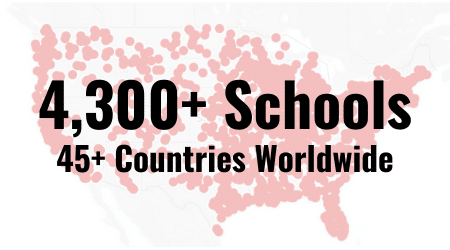Is There a Link Between Study Skills and Motivation?
Last week, a friend was telling me about her work with a community initiative to help “at-risk” youth get better grades in school. Before I could stop myself, I blurted out, “Oooh…they need study skills!”
She responded, “Well, we are focusing more on motivation,” and quickly continued with her story.
I shouldn’t have interrupted her story and didn’t want to be any more rude, so I didn’t push the issue. (I also realize that the rest of the world is not as excited about study skills as I am!) But, I also had a visceral reaction to her comment…a twinge in my gut. Are “study skills” and “motivation” mutually exclusive?
I wanted to scream, “NO!” but caught myself. Maybe I’m just a Study Skills Geek. Maybe I need to get out of my Own Little World and drop this crazy notion.
Meanwhile, my eight year-old son, Mark, was working his magic. As you may know from previous articles, Mark has ADHD and dyslexia. I have learned quite a bit from working through Mark’s challenges and have written several articles about our journey.
Mark knows that he is helping me learn so I can help other students and their families. He is very proud of this role and has been referring to the business as “our SOAR®.” Two weeks ago, he announced that he wanted to help with another project for our SOAR®. “I want to help kids who are having art problems!” he declared.
“What do you mean by ‘art problems’?” I asked. Mark took me on a long verbal journey through his clever little head before he reached a conclusion. “Art is really important because it makes kids’ brains creative and there are no wrong answers!” Hmm…wise little soul, he is.
Like all children, Mark is full of wisdom. So, when he made this comment, I wondered, “Is there more to art? Is there more that Mark is sensing, but may not yet have the words to describe?”
Two hours later, I received an email from a friend. It was a tribute to the late Steve Jobs and included a video of his 2005 commencement address at Stanford University. The entire speech was excellent, but one part of his story seized my attention!
Jobs explained that he was adopted. His birth mother agreed to give him up to his adoptive parents only after they promised to send him to college. His parents had little money and made major sacrifices to honor that promise. The only problem was…Jobs could not tolerate college. After 6 months, he quit. He did not want his parents to sacrifice so much for something that was providing him with so little.
After he dropped out, he was no longer required to take specific courses that did NOT interest him. He was now free to drop in on classes that DID interest him. One that caught his attention was a calligraphy class where he learned about different font types and how to create various styles. Most people thought he was wasting his time, but he was fascinated!
Years later, when he created the first Mac, Jobs thought about his calligraphy class and the many different styles of fonts. He thought it would be exciting to replicate those fonts on his computer…and he made it happen!
Today, we take “fonts” for granted, but if you have ever tinkered with different text styles on your computer, you can thank Steve Jobs and his calligraphy class.
Steve Jobs created many different companies and invented many different technologies. He surely had thousands of stories he could tell. But, he chose to tell about his calligraphy class. Clearly, he felt art was significant.
It was like Mark had conspired with Mr. Jobs!
A few days later, I was half-listening to the radio when I caught someone talking about the relationship between success and creativity. He explained that a key element to success in anything is to feed creativity. “Your mind and your heart share ONE creative center. Most people compartmentalize their lives, but that’s simply impossible. If you nurture your soul, you are feeding productivity in ALL parts of your life!”
I did not catch the full context of this discussion, but it didn’t matter. It was the perfect summary to Mark’s statements about the significance of art.
Every “Ying” Has Its “Yang”
Steve Jobs was successful because he blended his artistic heart with his technical brain. His creative skills required a technical home. His technical skills required a creative outlet.
Likewise, Einstein had an abundance of intellect. But, he never would have made his contribution to science if he did not have the creativity to ponder possibilities and test his ideas. He needed both ends of the spectrum.
As for study skills…they are the technical knowledge. They are not as exciting as a calligraphy class that inspired the greatest productivity tool ever created by man. But, they do feed the mind so the heart can grow! They give students tools to achieve success and confidence in life.
With confidence, students can be creative. With creativity, students are motivated. When they are motivated, they will get better grades.
So, if I could respond to my friend without being rude, I would explain that there is, in fact, a very clear relationship between helping students get better grades through motivation…and study skills.
I guess I’ll just have to send her the link to this article.
Thank you, my dear Mark!
Rest in peace, Mr. Jobs.
-Susan Kruger
JS110218
Six Steps to
Conquer the Chaos
Get Our Free Guide & Information on...

"*" indicates required fields
SOAR® in the News
The SOAR® Curriculum
The most critical learning, organizing, and communication skills needed for school. Learn more here.
Who’s Using SOAR®?
SOAR® Guarantee
Click here to learn more.




